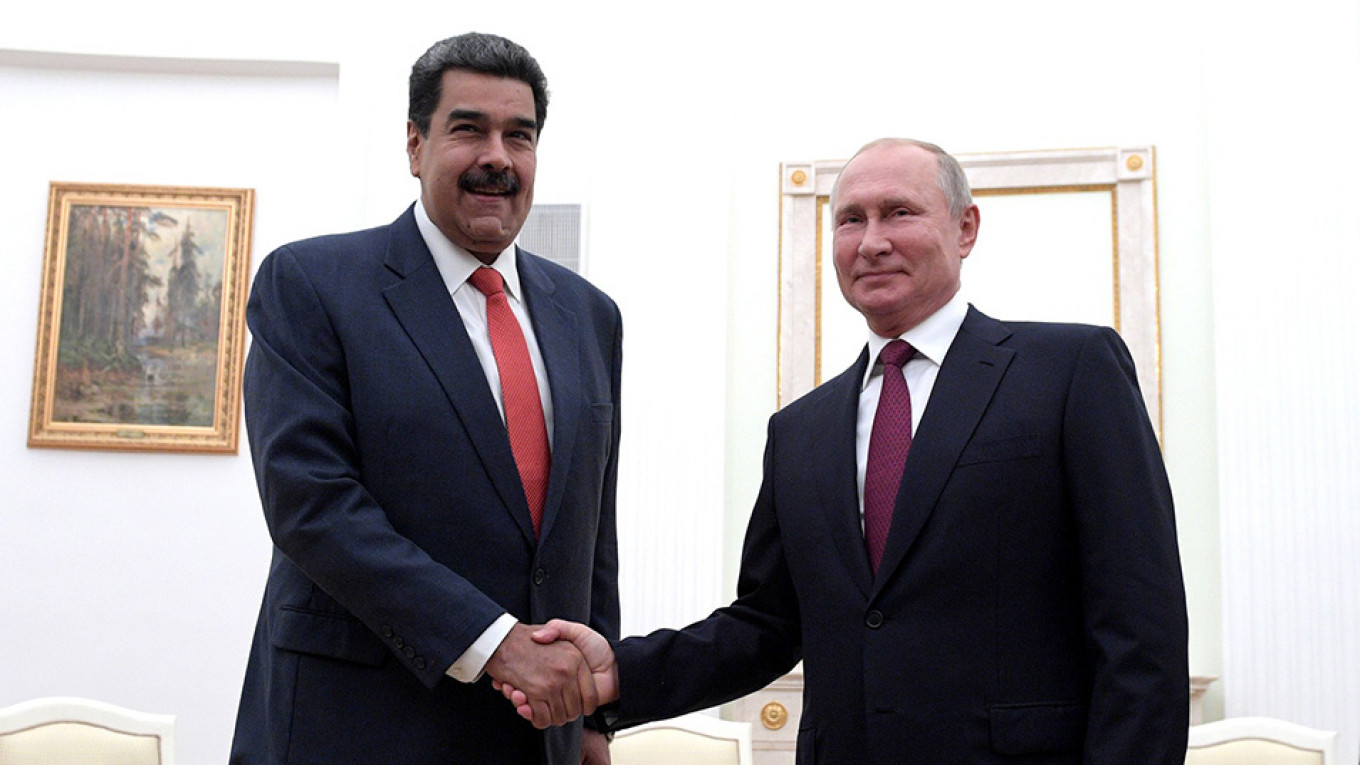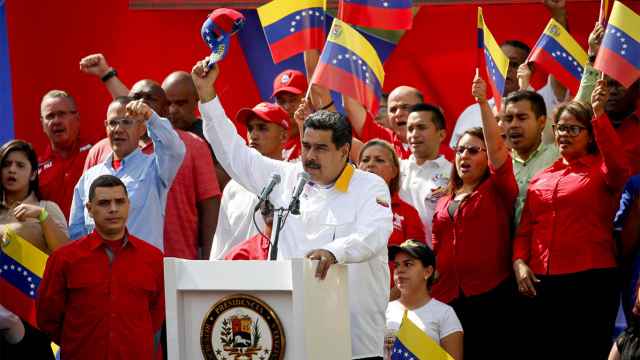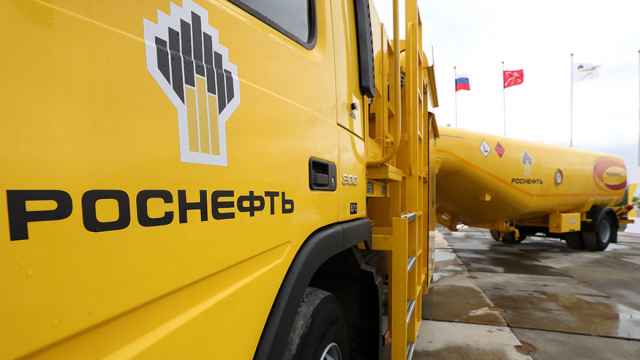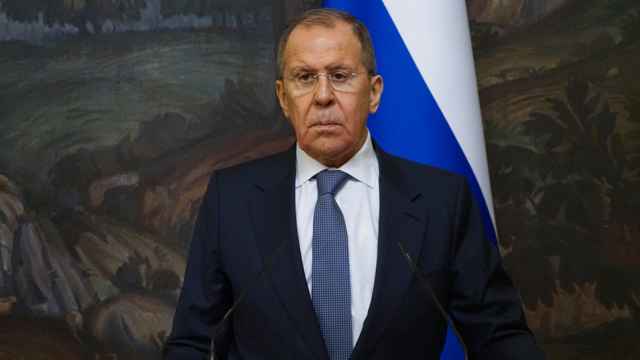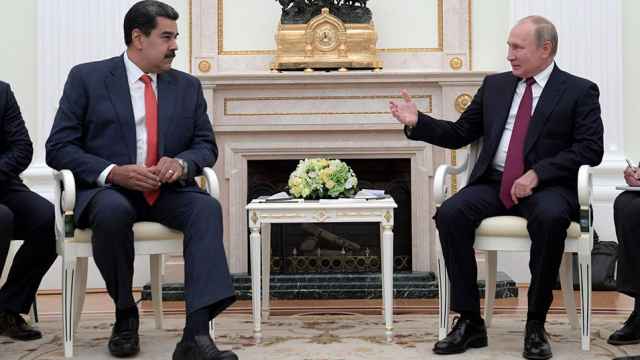Venezuelan President Nicolas Maduro continues to face regular anti-government demonstrations, drastic U.S. sanctions and significant political opposition while presiding over one of the worst economic collapses in modern history.
For the second time in a year, Maduro has come to Russia seeking help in achieving his key goals — restoring international recognition of his government, resuming international sales of Venezuelan crude oil and getting his hands on foreign currency to alleviate his government’s effective bankruptcy.
President Vladimir Putin hosted Maduro in Moscow, an upgrade from his last Russian trip in December 2018, when no presidential meeting was forthcoming despite strong overtures from Caracas.
However, the immediate takeaway from this week’s talks is that while Moscow still backs Maduro, its willingness to invest further to help him achieve his goals is limited.
Putin told Maduro that it would be "irrational" not to have talks with the opposition, led by U.S.-recognized leader Juan Guaido, just two weeks after Maduro pulled out of such talks.
Although there has frequently been overblown talk of Russia turning Venezuela into a new Syria, Putin’s statement should come as no surprise.
He said much the same after visiting Pope Francis in April, and when meeting Bolivian President Evo Morales, a Maduro ally, in July.
Putin’s spokesman, Dmitry Peskov, said the pair did not discuss new loans, and no new investments were announced.
The absence of such pledges is significant.
After Maduro last visited Russia, he posted a video on Twitter claiming agreement had been reached on more than $5 billion in oil investments and guarantees, with another $1 billion for the mining sector. Russia has yet to announce any such investment.
Peskov and Russia’s state media were therefore clarifying that these kinds of sums were not on offer this time around. Talks were limited to humanitarian aid, increasing food supply and Russia’s pre-existing investments in Venezuela, which Putin put at around $4 billion.
That is a significant low-ball.
As recently as the end of 2017, Russian state energy firm Rosneft was owed $4.6 billion by its Venezuelan counterpart PDVSA.
Although that debt is now down to $1.1 billion, Venezuela’s $3.15 billion in official bilateral debt to Russia was restructured in 2017. Billions more have been invested in joint ventures across the oil industry, again primarily by Rosneft, while Venezuelan oil production has fallen to its lowest level in decades.
Hundreds of millions of dollars have disappeared from a project in which Gazprombank invested over $1 billion.
Two factories Russia is building in Venezuela have been delayed for years and there is no prospect of them opening any time soon, as Rostec CEO Sergei Chemezov admitted in an interview last week.
One of them — a Kalashnikov weapons factory has been mired in corruption and seen Russian officials jailed.
And while Putin and Maduro spoke of Russia continuing its military-technical support, it is worth highlighting just how much arms sales have faltered. Russia sold Venezuela more than $10 billion worth of weapons between 2005 and 2010, then just $1 billion between 2012 and 2015. There have been no new public sales since.
In contrast, Russia’s recent shows of military support for Caracas — sending two bombers shortly after Maduro’s last visit and allowing Russian troops to be photographed disembarking in Venezuela this May — are far cheaper.
Venezuela is by no means without Russian backers, even if the economic benefits of the relationship have evaporated.
Foremost among them is Rosneft’s head Igor Sechin, who also attended Maduro and Putin’s meeting.
Sechin has not only led Russia’s investments into Venezuela, but has also publicly backed the politics of the Bolivarian regime.
Venezuela has become increasingly dependent on Rosneft, which now serves as the key conduit for exporting Venezuelan crude from the country and getting diluents to PDVSA. Rosneft has also become Venezuela’s its key supplier of refined petrol.
And while this has served Rosneft by drastically cutting the amount outstanding on its PDVSA’s debts, the Russian company has also used its effective control of India’s Nayara Energy — in which it holds a 49.13% share — and its Vadinar Refinery to find at least one foreign outlet for PDVSA.
This trade continues only because the U.S. Treasury has determined it is not in violation of its prohibitions on dealing in Venezuelan crude, as the shipments are repaying loans agreed before Washington’s sanctions regime on Venezuela escalated dramatically.
Yet tensions remain. On Sept. 10, Rosneft issued a press release stating its willingness to hold talks with Washington on the situation, while criticizing U.S. Special Representative Eliot Abrams for warning Washington may still sanction Rosneft for its activity there.
What happens once Rosneft’s loans to PDVSA are repaid — at the current rate likely to happen by year end or in early 2020 — remains to be seen.
But Sechin’s penchant for using Rosneft to advance Russia’s political interests, including with regards to foreign policy, at the expense of those of its shareholders, is now widely acknowledged.
While the highlights of Putin and Maduro’s meeting signify that Moscow will not help Maduro get everything he wants, Sechin’s presence indicates that Maduro might just find he gets what he needs.
Max Hess is the author of the Foreign Policy Research Institute’s report on the Russian and Venezuelan relationship available at https://www.fpri.org/article/2019/01/russia-in-venezuela-geopolitical-boon-or-economic-misadventure/
A Message from The Moscow Times:
Dear readers,
We are facing unprecedented challenges. Russia's Prosecutor General's Office has designated The Moscow Times as an "undesirable" organization, criminalizing our work and putting our staff at risk of prosecution. This follows our earlier unjust labeling as a "foreign agent."
These actions are direct attempts to silence independent journalism in Russia. The authorities claim our work "discredits the decisions of the Russian leadership." We see things differently: we strive to provide accurate, unbiased reporting on Russia.
We, the journalists of The Moscow Times, refuse to be silenced. But to continue our work, we need your help.
Your support, no matter how small, makes a world of difference. If you can, please support us monthly starting from just $2. It's quick to set up, and every contribution makes a significant impact.
By supporting The Moscow Times, you're defending open, independent journalism in the face of repression. Thank you for standing with us.
Remind me later.



